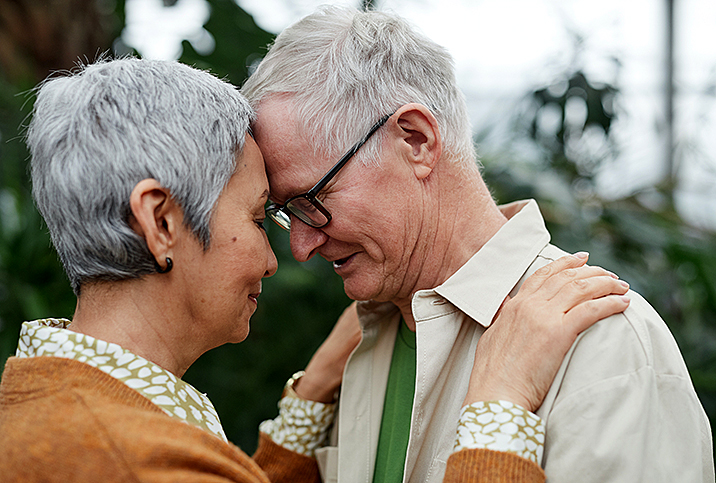Who Wants to Live Forever?

Though we undoubtedly live longer on average than our ancestors did, even just a few decades ago, experts say the increase in life expectancy will continue to slow between now and 2060.
Before you shudder in disappointment, look at the numbers. In the 1800s, life expectancy was somewhere between 40 and 45 years. By 1922, a century ago, the number had climbed to 58.8 years. Historical data from the U.S. Census Bureau indicated that by 1960, life expectancy for the nation's total population was 69.7 years. By 2015, the figure had increased by a decade, bringing life expectancy to 79.4 years.
Over the past 200 years, our life expectancy has nearly doubled, but projections for the future are less optimistic.
Looking forward
A report published in 2020 by the Census Bureau predicted that by 2060, life expectancy will increase by only six years: from 79.7 years in 2017 to 85.6 years in 2060.
According to experts, the rapid increase in life expectancy throughout history is largely attributed to better healthcare, improved hygiene, a sufficient food supply and reduced childhood mortality. But while living longer seems like a generally positive outcome, Guy Brown, Ph.D., a professor of cellular biochemistry at the University of Cambridge in London, pointed out that gains in longevity have not been accompanied by a proportional increase in quality of life for older adults, who become more at risk for disease, disability and dementia as they age.
"There has been a dramatic increase in funding for and research on aging, dementia and mental health, driven by increasing awareness of these conditions and their impact on us," Brown explained. "But this has not fed through to new treatments yet. In Western countries, the progressive increase in life expectancy has slowed to a crawl since about 2010, partly due to increased obesity, dementia and the resurgence of infectious disease such as COVID."
Gains in longevity have not been accompanied by a proportional increase in quality of life for older adults.
Brown, who specializes in research on aging, argued that more focus should be placed on how to increase the quality of life in old age rather than constantly working toward extending it.
"There has been a huge increase in research on aging, partly due to increased investment, and our understanding has been transformed," he added. "I am excited and have no doubt that this will feed through to treatments in time. However, aging is not a single entity; it is everything that goes wrong with the body as we age. So treatments are likely to be incremental rather than transformative."
Brown said he is optimistic the new interest and research on aging will eventually generate discoveries and medical advances that could begin to slow aging. However, due to cost, these advances may be financially accessible only to the rich, at least in the beginning, he noted.
"Whether this will affect average life span is difficult to predict. Such predictions have been very poor in the past," Brown said. "And the aim should be to improve quality, rather than quantity, of life."
Staying healthy in old age
We're living longer and that's great. In the future, we will likely live even longer, which is also great, but how can we get more life out of our years?
To answer this question, it's useful to note the leading causes of death in individuals ages 65 and older: heart disease, cancer, stroke, chronic lower respiratory diseases, influenza and pneumonia, Alzheimer's disease and diabetes, according to the Centers for Disease Control and Prevention (CDC).
Eating a balanced diet and maintaining regular exercise can enhance your quality of life and help prevent some of those life-threatening diseases. Experts say you can't overstate the long-term value of keeping regular preventive healthcare appointments, maintaining dental health, and taking precautions such as getting your hearing checked and eliminating trip hazards from your home. Researchers have also found that orgasms, sensual touch and intimate connections may help with both mental and physical longevity.
But no matter how healthy your lifestyle is, some diseases simply aren't preventable. The Alzheimer's Association reports that 10 percent of people older than 65 have Alzheimer's disease, while a third of individuals older than 85 have it.
Claire Sexton, the senior director of scientific programs and outreach for the Alzheimer's Association, said that while there are medications that can temporarily treat some symptoms of Alzheimer's, there is no cure.
"Today, there is no proven way of preventing Alzheimer's disease," she said. "But there is a growing body of data that shows key lifestyle changes may help stave off cognitive decline, including getting regular exercise, eating a heart-healthy diet and staying engaged cognitively and socially."
While there aren't any cures or preventions for Alzheimer's, researchers continue to work toward these advances in the hopes that more older adults will be able to maintain their physical and mental health and quality of life as life expectancy increases.
"This is an incredibly hopeful and exciting time in Alzheimer's research," Sexton explained. "We're hopeful that the recent approval of medications, as well as the existence of several diverse treatments currently moving through the research pipeline, are signals of many more Alzheimer's therapies to come in the near future. But the work doesn't stop there. More than ever before, Alzheimer's researchers understand that a variety of approaches will be needed—most likely used in combination—for effective treatment of the disease."


















